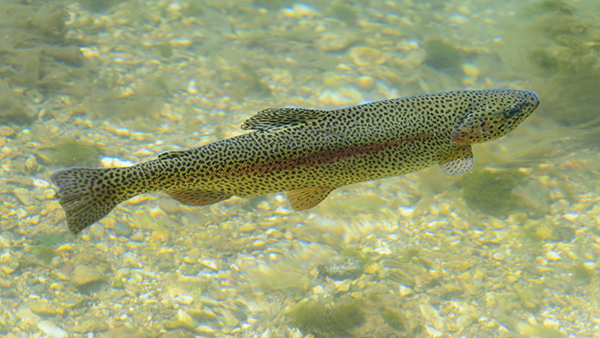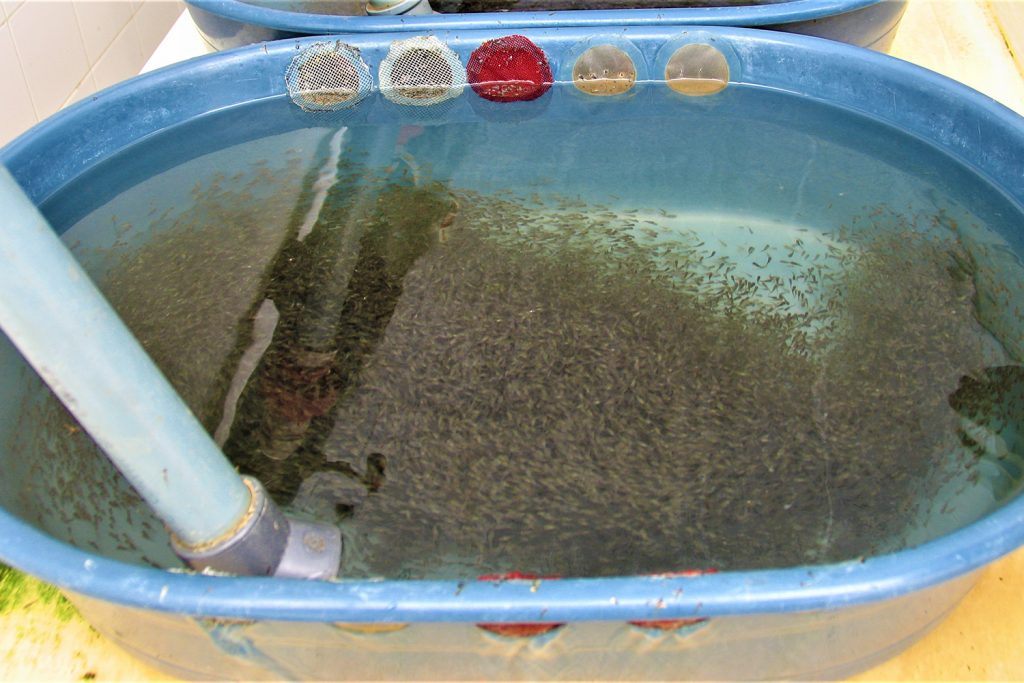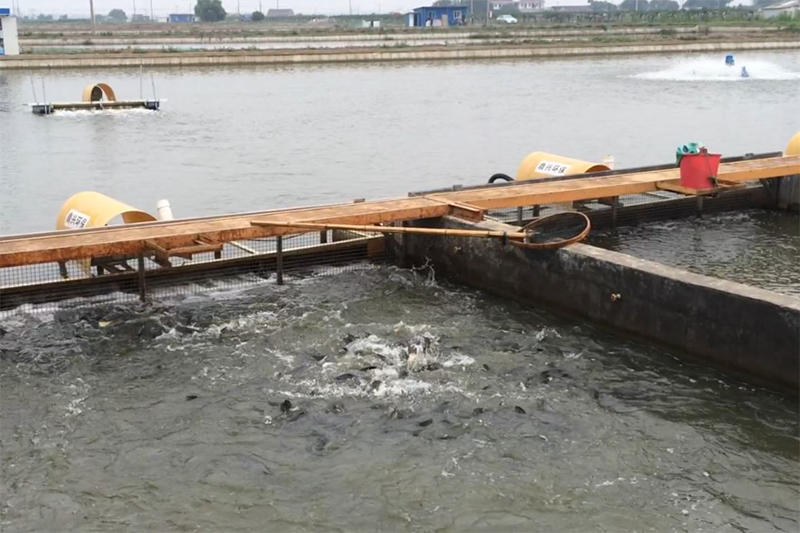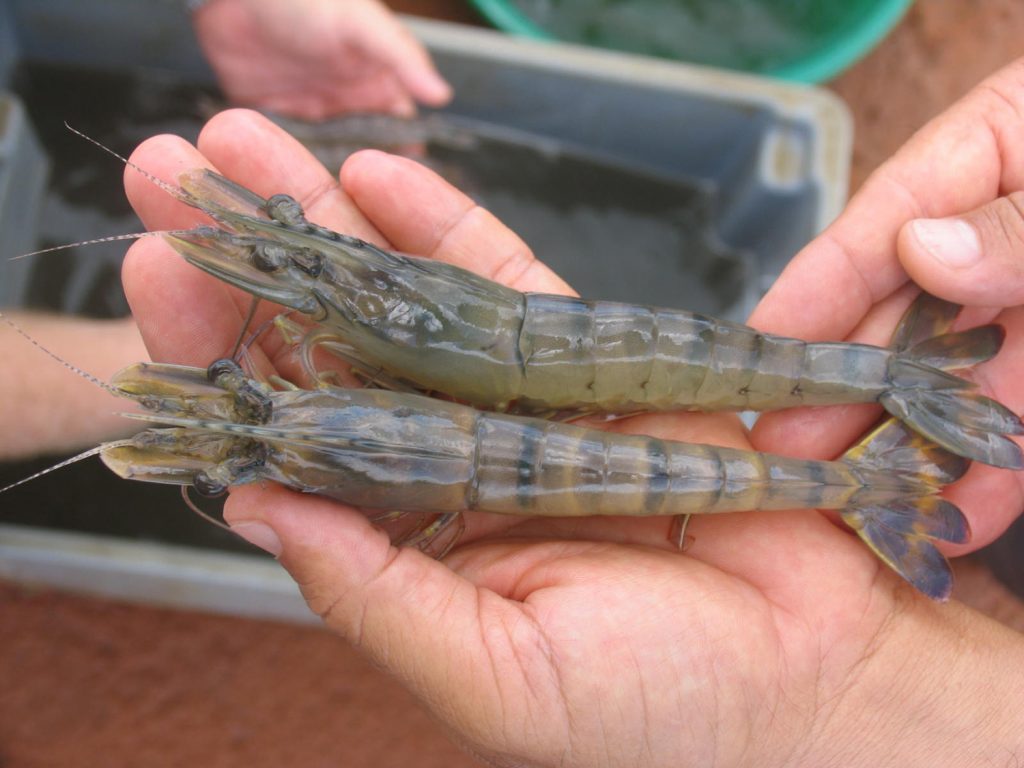‘Groundbreaking’ study has implications for fish health, aquaculture vaccines and the U.S. fish farming industry

Researchers from the University of New Mexico have discovered an immune structure in the nasal cavities of rainbow trout that scientists previously didn’t know existed. The new knowledge will allow fish immunologists better understand the efficacy of aquaculture vaccines. The study, which was published in the Journal of Immunology, was funded by a three-year, $500,000 grant from the USDA’s National Institute of Food and Agriculture.
While fish and mammals have similar immune systems, there are important anatomical differences. For the most part, the immune system of non-mammalian vertebrates is not well known.
The investigators noted that this nasal immune structure has molecular features of “germinal centers” – a reaction that happens in humans when we get vaccinated or infected. Germinal center reactions are often used as markers for vaccine responses.
“We knew about germinal center reactions in lymphoid structures in humans, mice and birds, but we didn’t think the architecture of the fish immune system had such structures,” said Irene Salinas, a professor and associate chair in biology. “Many people have looked for them including us, but we couldn’t find them, mainly due to the lack of the right tools.”
Until 2018, the researchers kept dissecting the olfactory organ of trout out of the fish nasal cavities, “leaving behind the answer they were looking for.” One of the researchers, Pedro A. Castrillo, suggested keeping the discarded part and examining the entire undisturbed nasal cavity.
“We were basically leaving that tissue behind, and that’s where this structure is,” Salinas said. “We have been investigating the nasal immune system of fish for a decade, but we kept missing these unique structures full of lymphocytes.”
The study has implications for fish health, vaccinology and the U.S. fish farming industry, Salinas said. The B cells in the germinal centers are part of the immune system and create antibodies to fight viruses and bacteria, giving researchers a look at how fish react to vaccines.
“When we were developing vaccines until now, we didn’t know where to look to measure the impact of the vaccine on fish immune systems,” she said.
With this new information, vaccinations in fish can be better understood, including the best interval time between doses of vaccinations that require more than one administration. There is also hope that the research can reduce the cost of vaccinating fish. The team hopes the USDA will continue to support the work to optimize booster vaccines for aquaculture that can be delivered without injection (mucosal vaccines).
Follow the Advocate on Twitter @GSA_Advocate
Now that you've reached the end of the article ...
… please consider supporting GSA’s mission to advance responsible seafood practices through education, advocacy and third-party assurances. The Advocate aims to document the evolution of responsible seafood practices and share the expansive knowledge of our vast network of contributors.
By becoming a Global Seafood Alliance member, you’re ensuring that all of the pre-competitive work we do through member benefits, resources and events can continue. Individual membership costs just $50 a year.
Not a GSA member? Join us.
Author
Tagged With
Related Posts

Health & Welfare
Biotech startup FeedVax nets funding to develop oral vaccine for fish
Argentinian biotechnology startup FeedVax has received funding from Conservation International Ventures to develop an oral vaccine for fish.

Health & Welfare
Vaccinating Nile tilapia against Tilapia Lake Virus (TiLV)
Immunized Nile tilapia broodstock can mount a protective antibody response to Tilapia Lake Virus and transfer antibodies to progeny.

Health & Welfare
Potential application of plant-produced vaccines in aquaculture
Authors evaluate the suitability of various production platforms and other considerations regarding plant-produced vaccines for farmed fish.

Health & Welfare
New circular DNA vaccines and heritable, anti-viral immunity possible for shrimp
Author evaluates production of new circular DNA vaccines and heritable anti-viral immunity for shrimp based on viral defense mechanisms.



